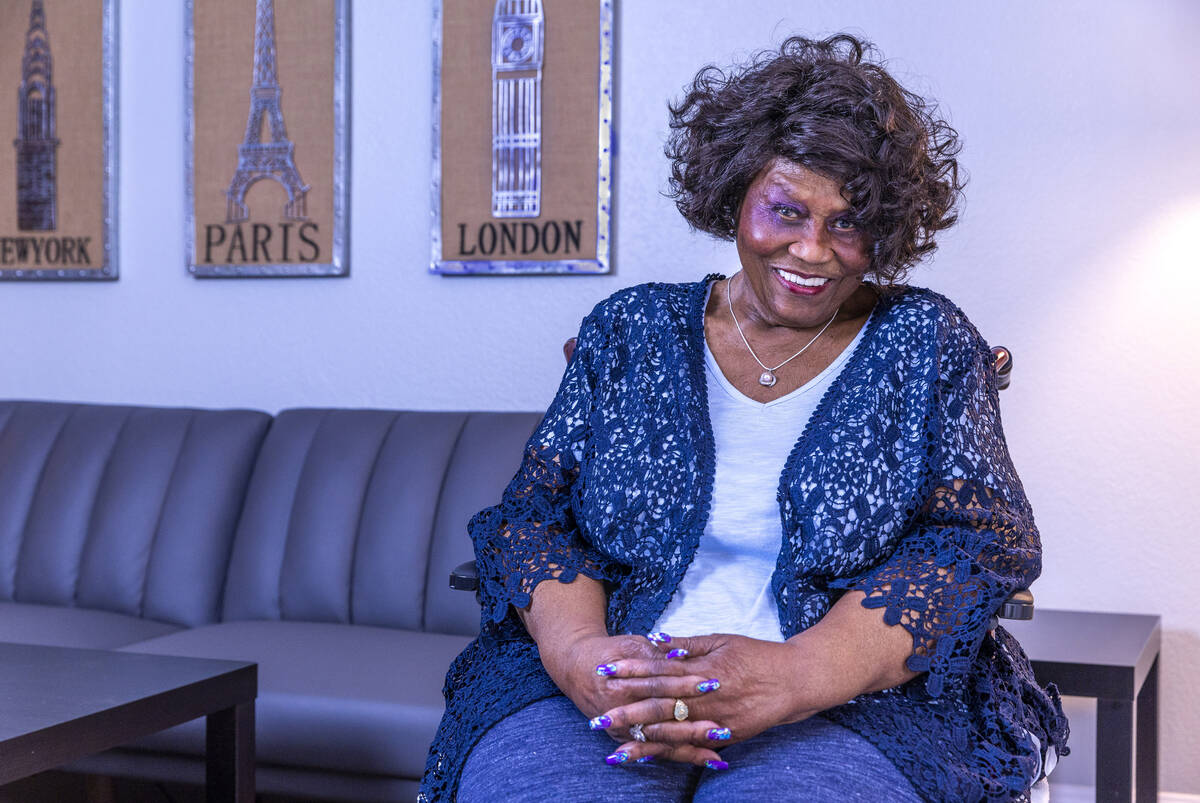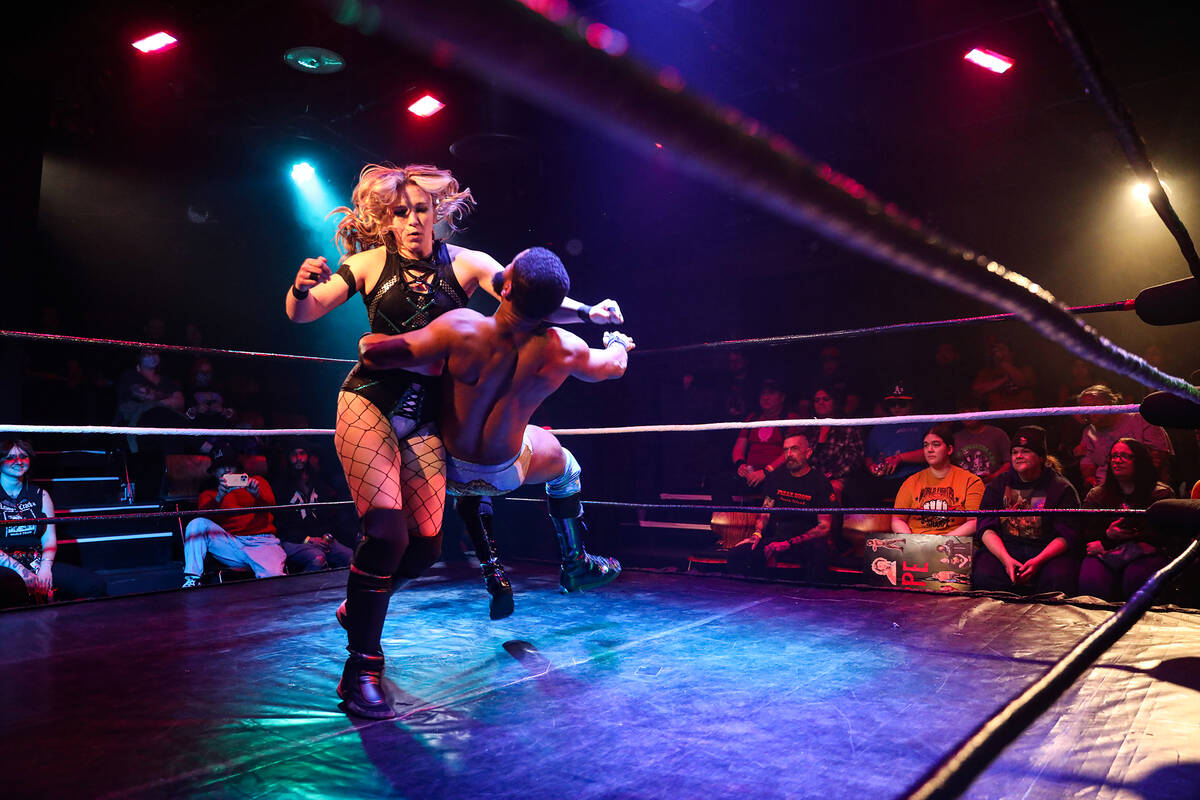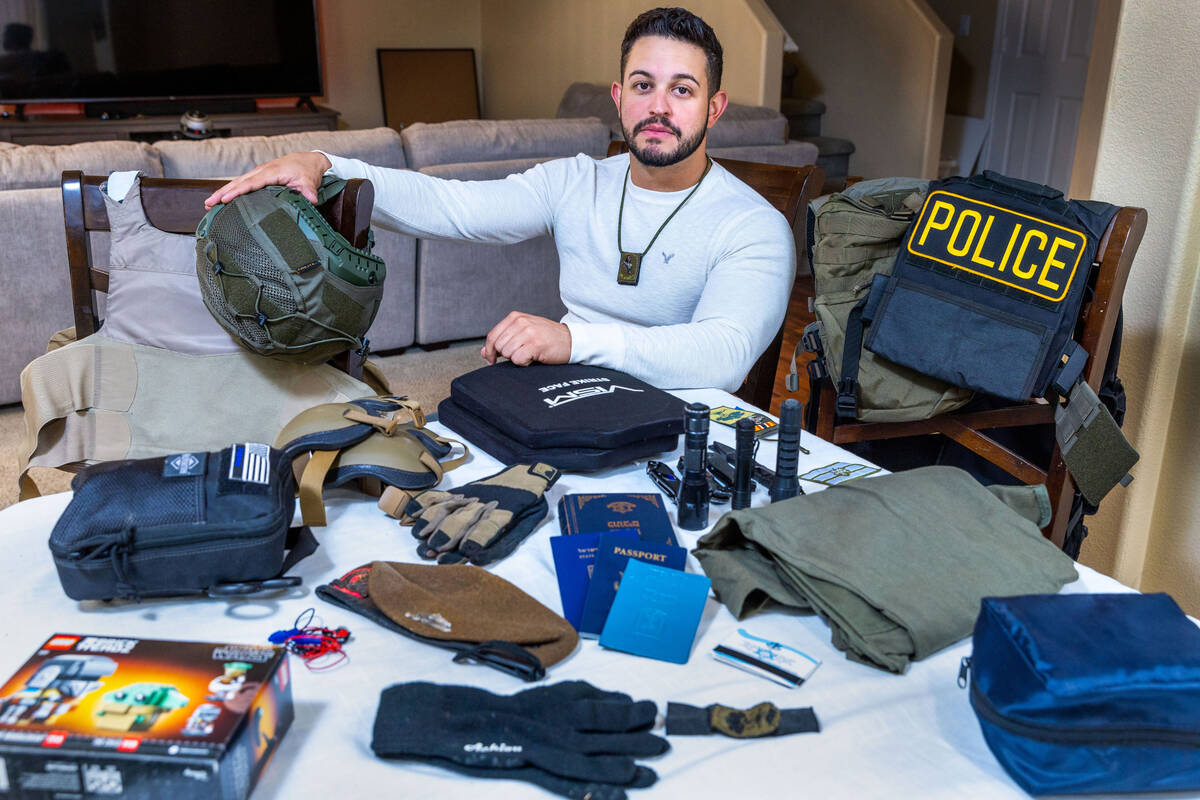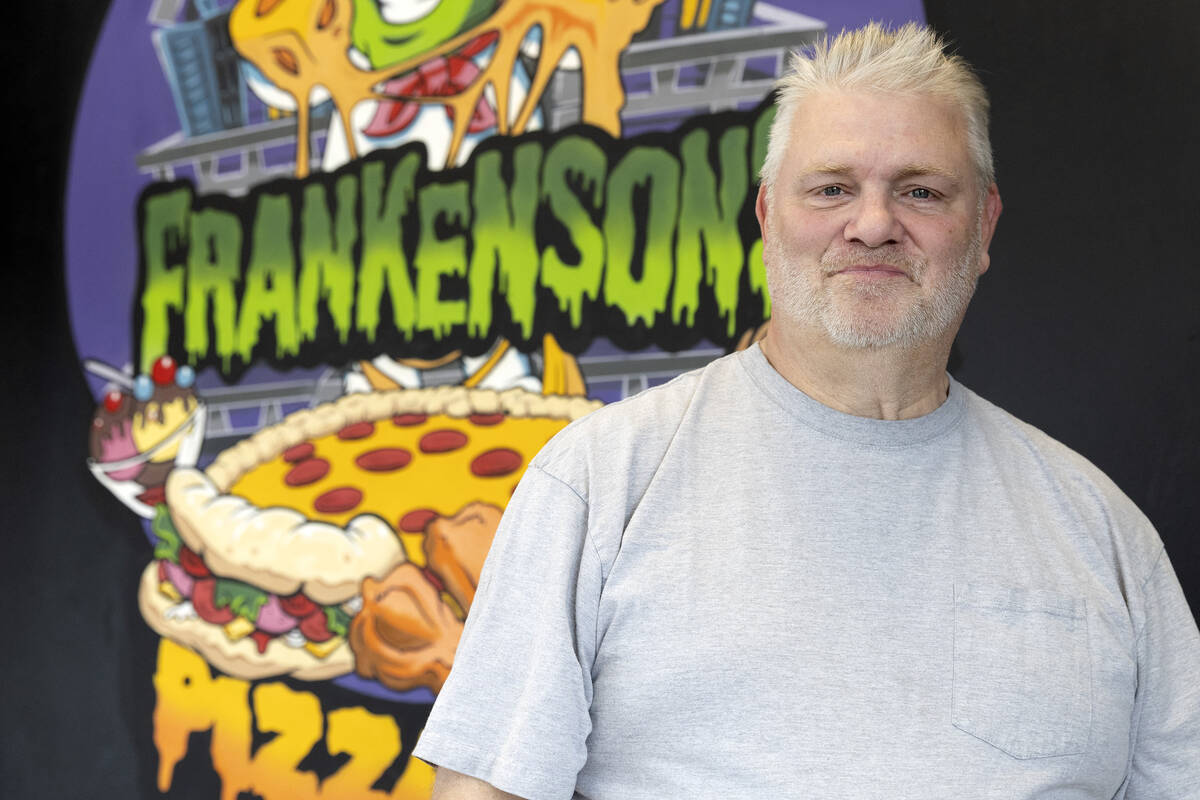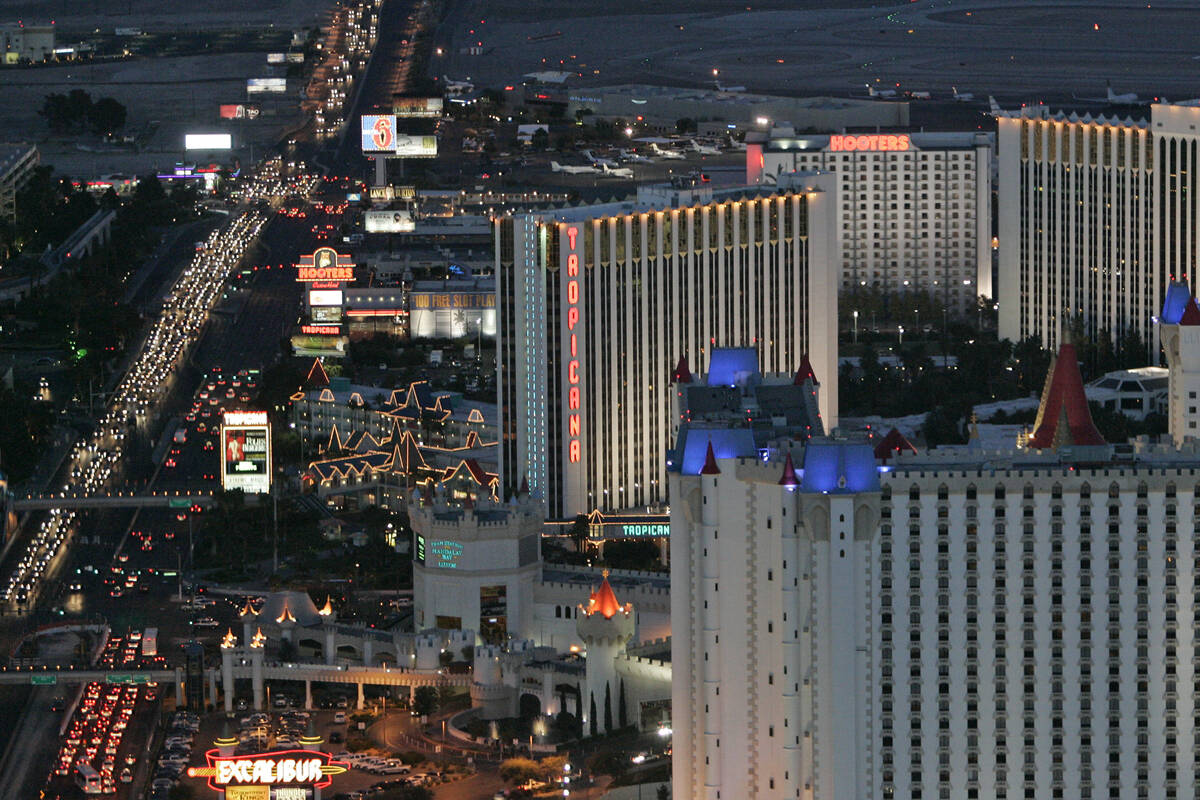Jason Bracelin’s best stories of 2023: Historic casinos and headlocks
Las Vegas is a city where hope and hardship are frequent dance partners.
This was further underscored in the past year, with stories of both dreams finally coming true and dreams fading away despite the most glorious of pasts.
Ultimately, this a town where just about anything remains possible.
And if 2023 reaffirmed anything, it’s that here in Las Vegas, underdogs can still pack a serious bite.
His dream was about to become a nightmare: But five months after realizing a lifelong goal of opening his own pizzeria, Frank Steele was faced with the prospect of shuttering his Italian eatery, Frankensons, due to a lack of business.
But then a former MMA-fighter-turned-popular-TikTok food influencer stopped by unannounced and changed everything.
A look inside the incredible story of how a business went from near-bust to booming thanks to a fateful visit.
The Tropicana’s lavish, outlaw legacy
Batter up, hotel down: With the Oakland A’s relocation to Vegas all but certain, the Tropicana Hotel, which rests on the site of the team’s proposed stadium, could soon go the way of the Stardust, the Dunes, the Desert Inn and other storied Vegas casinos imploded into the history books.
But should the Tropicana soon be no more, it’ll leave behind a rich legacy as one of the casinos that helped usher in a glamorous new era for the city a little over six decades ago, helping Vegas go from kitschy to cosmopolitan, from a little corny to cool.
Oh, and did we mention all those showgirls and gangsters as part of the casino’s lavish, outlaw history?
There are plenty of those, too.
When the call came, he was quick to answer.
“‘Soldier, return.’”
That was the command given to Las Vegas Metro Police officer Ariel Sally, who was also a reservist for the Israel Defense Forces, after Hamas terrorists attacked Israel on Oct. 7th.
Sally received emergency orders to return to Israel and join the fight and protect the country shortly thereafter.
Just days before boarding a plane to Tel Aviv, Sally invited the R-J into his home to share the story of why he left behind his life in America, knowing he might never return after putting himself in the throes of war.
How a welfare mom took on the system. And won.
‘You poor. You stupid. You don’t have an education.’
Those words, intended to sting, were a common taunt directed at Ruby Duncan decades ago.
A single mother living in Las Vegas in the early ’70s, Duncan frequently butted heads with a welfare system that often seemed more harsh than helpful.
But on March 6, 1971, that began to change in earnest when Duncan helped organize a crowd of 1,500 to march on The Strip and demand better treatment, their efforts chronicled in the gripping PBS documentary “Storming Caesars Palace.”
Duncan’s efforts changed the game for underprivileged women like herself.
This is the story of how she did it.
With a voice that booms like a detonated landmine, the ring announcer spells things out in ALL CAPS.
“For those of you who don’t know,” Diana Montes Sandoval begins, “let me remind you: No racists here. No sexists. No homophobes. And absolutely no bigots here.
“This is PrideStyle,” she concludes. “We are a safe space for violence.”
And so began our comprehensive, behind-the-scenes looks at Las Vegas’ first LGBQ+-friendly wrestling league, which affords an equal to opportunity for a good ol’ fashioned pummeling to anyone, regardless of gender, size, shape or sexual orientation.
Contact Jason Bracelin at jbracelin@reviewjournal.com or 702-383-0476. Follow @jbracelin76 on Instagram



